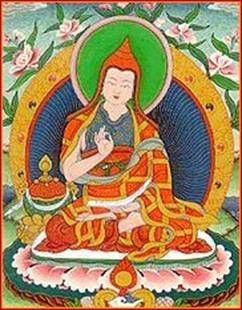 Positive mysterianism: it’s not only for Christians. And I very much doubt it was Christians who first hit upon the strategy… In any case, here’s an example from fourth century India:
Positive mysterianism: it’s not only for Christians. And I very much doubt it was Christians who first hit upon the strategy… In any case, here’s an example from fourth century India:
Our only grounds for speculating about Mainstream responses to Mahayana thought are the objections that the Mahayanists address in the own writings. In some cases, the Mahayanists argue against the objections, in others they are content to leave them as paradoxes that separate the sheep from the goats: Only a bodhisattva [i.e. an enlightened person, destined to become a buddha], they say or imply, would have the courage not to be deterred by such paradoxes. Asanga, for instance… the second objection [to his doctrine of Buddhahood] is this: If the realization of all Buddhas, past and future, is already identical, beginningless, and infinite, then why must individual bodhisattvas exert effort for the sake of Awakening? This paradox Asanga allows to stand. (Robinson, et. al. Buddhist Religions: A Historical Introduction, 5th ed., p. 117, emphases added)
To paraphrase: if you were an enlightened being like me – which you are not – you would accept this piece of evident nonsense like I do. That I accept it shows my spiritual advancement. What’s that, you say? Why don’t I accept all contradictions? Other contradictions, of course, are unacceptable. But this one is mine. It is accepted, not only by me, but by my homeboys too. Thus, it is acceptable. But I realize that I’m wasting my breath talking to you about this.
